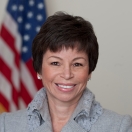
Greetings from abroad!
Per my last blog post, I mentioned that I would be meeting with women’s organizations during our trip to Mumbai and New Delhi, so I thought I would update you on the amazing women that I have encountered during my travels.
My first meeting took place in Mumbai on Sunday, November 7th with members of the Federation of Indian Chambers of Commerce and Industry (FICCI), Ladies Organization (FLO), the International Center for Research on Women (ICRW), and the Gateway House to discuss their respective organization’s efforts to empower and improve the lives of women. The meeting brought together key local actors in India’s business and research sectors who focus on women’s empowerment issues.
I entered the room to greet seven dynamic women who were eager to share information about their respective organization’s innovative programs aimed to promote entrepreneurship and professional excellence in women. After introducing myself and discussing my role as Chair of the White House Council on Women and Girls, I heard from women from various backgrounds who were inspired to empower women, recognizing that women, if given the opportunity, can become powerful change agents in their communities. Among other extraordinary women in the room, there was a first generation entrepreneur as well as a woman who established the first cable company in India.
Kiran Gera, Past National President of FICCO FLO, discussed how she watched as women’s lives were transformed after they were given the opportunity to enter the blue collar workforce and develop skills in masonry and other labor-intensive jobs. She recalled how their success not only changed the women’s perceptions of themselves but also changed how they were perceived in their broader communities. Bela Rajan, Chairperson of FICCI FLO, spoke to the importance of education and how it helps foster women’s empowerment, entrepreneurship and social mobility, exemplifying how no country can move ahead if half of its population is left behind.
The women also stressed the importance of enforcing laws that are in place to protect women, and of ensuring that men are integrated into efforts to elevate and empower women. In that context, I described the work that is done by the Council on Women and Girls to ensure that policies impacting women are mainstreamed throughout the U.S. federal government.
At the conclusion of the roundtable with these extraordinary women, I was encouraged by their stories, and looked forward to the next roundtable discussion I was to have in New Delhi.
On Monday morning in New Delhi, I met with a group of women civil society leaders to discuss the challenges and opportunities Indian women and girls face. The discussion underscored the importance of empowering women and girls to improve their economic prospects and overall well-being. This meeting convened social activists and experts in India’s developmental sector who focus on women’s empowerment issues. The roundtable participants included members of the Self Employed Women’s Association (SEWA), the Garima Project, the Working Women’s Forum, the Center for Social Research, Seeking Modern Applications for Transformation, and the India Vision Foundation. Members of the United States Agency for International Development (USAID) also participated in the roundtable to share their experiences with respect to USAID programs.
After being introduced by Nisha Desai Biswal, USAID's Assistant Administrator for Asia, I heard from the women about their experiences in their respective fields.
Ms. Nanavaty with SEWA explained that the organization works to empower women workers in 11 Indian states and countries across the region, including Afghanistan, Pakistan, Bangladesh, and others. She stated that SEWA's training targeted 1.5 million women for programs in green technology including solar energy and cook stoves. Ms. Jyoti Macwan, SEWA’s General Secretary, told how SEWA's aim to ensure that women become self-reliant can only be achieved if women are the owners, users, and managers of their programs.
Ms. Tara Sharma with the Garima Project discussed the organization’s work, which focuses on Muslim women and gender-based violence from the human rights perspective. The Garima Project also focuses on men and boys as well. Her programs include information sharing and training programs which she has been working to implement in schools and universities. A significant part of her work to eliminate gender-based violence includes raising awareness among doctors providing health services to victims of gender-based violence, as well as targeting the judicial sector with legal awareness programs.
The stories of these women in Mumbai and New Delhi were a reminder that there are extraordinary women around the world developing and implementing innovative programs demonstrating that women are powerful contributors to their families and their communities, particularly if they have access to the right tools. By talking to women across the United States and in India, I am also reminded that there is a common humanity and a common thread that unites us in our efforts to remove barriers preventing women from working for the good of their communities.
Earlier this week, President Obama accepted a Medal of Honor on behalf of his late mother from Indonesian President Yudhoyono. As President Obama recounted in a statement describing his mother, by educating girls and empowering women we are developing an entire country. We know that increasing women’s equal access to business opportunities, entrepreneurship and capital is vitally important to any country’s economy.
These women illustrate what the President and his mother worked for in empowering women, and exemplify how India is a regional leader in promoting women’s entrepreneurship. I am very much looking forward to working with them in assisting the empowerment of women, not only in India, but throughout the world.
Valerie Jarett is Senior Advisor to the President and Chair of the White House Council on Women and Girls


